








Thank you for picking up the autumn edition of the Dulwich Diverter, your free local paper for Dulwich.
The cover star of this edition is the writer and walker Jack Cornish, who possesses what DJ Zoe Ball has called the best job title in Britain: head of paths for the country’s leading walking charity the Ramblers.
Alongside his work for the Ramblers, Jack has somehow found time over the past few years to write his first book, which touches on many aspects of his work.
Published by Penguin earlier this year, The Lost Paths: A History of How We Walk From Here To There is a wonderful
This autumn, 10 years after its critically acclaimed show Ravilious, Dulwich Picture Gallery will welcome back the guest curator James Russell to present the first major exhibition devoted to the British artist and designer Tirzah Garwood.
Known for her autobiography, Long Live Great Bardfield, and as the wife of Eric Ravilious, Garwood excelled as a fine artist and printmaker.
Tirzah Garwood: Beyond Ravilious will be the first time the full extent of her output has been shown, giving the artist’s captivating works the critical examination and public showcase they deserve as gems of the mid20th century.
The retrospective will offer a rare opportunity to view more than 80 of Garwood’s works, including most of her existing oil paintings, almost exclusively from private collections.
It will introduce an artist whose creativity flourished in the face of adversity, unveiling Garwood’s “sophisticated naive” approach that allowed her to infuse apparently innocent or straightforward subjects with deeper meanings.
Included in the exhibition will be 10 watercolours by Ravilious, which will draw out the thematic similarities, shared interests and distinct artistic personalities of this remarkable creative couple. From their first meeting in 1926, when Garwood began studying with Ravilious at Eastbourne School of Art, their creative and personal lives were intertwined.
The exhibition will present a series of Garwood’s experimental marbled papers, which were ordered by publishers, interior design shops and private clients. Juggling the demands of motherhood and her creative practice, she pioneered a distinctive decorative style, layering delicate repeat patterns to create harmonious designs that were unlike anything being made in Europe.
read – by turns humorous, reflective, inspiring and informative.
Jack will be one of the headline acts at the inaugural SE London BookFest that we are proudly launching this November.
Many local people and businesses helped to crowdfund this new literary festival. We’d like to say a massive thank you to the following: Heather MacFarlane, Yvette Rawle, Mark Baxter, Sue Walker, Tristan West, Damion Viney and all at Co-Accounting.
Dominic Walker, HTW, Tuts, Ellie Wood, Julia Mlambo, Guy Ware, Anne Coates, Sanjit Chudha, Jill Cuthbert, Kim Smith, Julian Kenny, Rosemary
Chapman, Guy Haslam, Hayley Farrant, Rebeka Russell and all at Manderley Press.
Corinne Browne-Marke, James Wilson, Susan, Varun V Nair, Julia Silk, Elly Allen, Thomas Keenes, Hannah Moffatt, Nora Thurkle, Clare Pollard, Emma Draude and all at ED Public Relations, Polly Rowena Atkin, Alan Old and all at So Last Century.
Rose Aldred, Nina Mguni, Robert, Jo Lavender, Susan Mayne, Mallory Napolitano, Jane Martin, John Reiss, Chris Martin, Julia Hawkins, Yvonne Doolan, Kenneth Whyte, Jez Burrows.
Sean Doherty, Claire Fisher, Victoria Chiriga, Deborah Maclaren, David
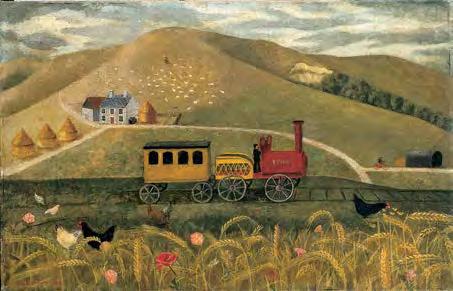

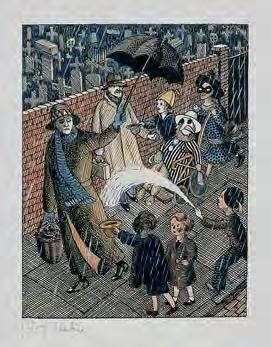
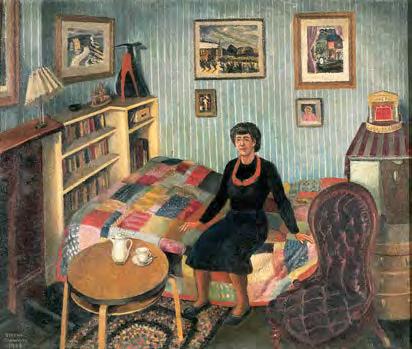
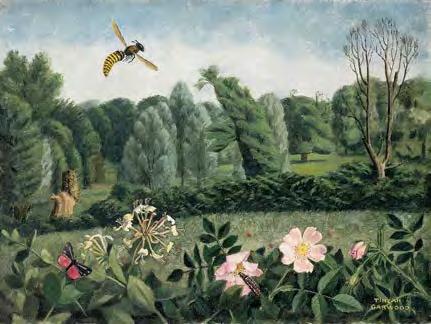
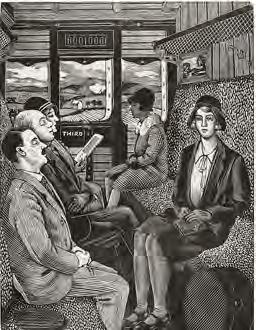
Editors Mark McGinlay, Kate White | Designer Mingo Mingo Studio | Cover designer Jake Tilson
Photographers Lima Charlie, Julia Hawkins | Features editor Luke G Williams | Subeditor Jack Aston
Illustrator Peter Rhodes
Marketing and social media Mark McGinlay
Passey, Donna, Marlowe, Random Tangent, Liz Hoggard, Shawn Clark, Jessica Horwill and The Creative Fund by Backer Kit.
The next issue of the Dulwich Diverter will be the Christmas and New Year edition, published in mid-November and available until early February. As ever, it will be distributed to our many stockists across East, West, North Dulwich and the Village. If you’re a local business or organisation who is interested in advertising, please drop us a line via dulwichdiverter@gmail.com. We hope you enjoy the issue!
MarkMcGinlayandKateWhite
Representing all areas of her practice, the exhibition will include Garwood’s tender pencil sketches that were also created during this period, which depict her children John, James and Anne.
The exhibition will conclude with a series of works created during the final year of Garwood’s life. Due to her declining health and the recurrence of cancer, Garwood moved into a nursing home, where she died on 27 March 1951.
Perhaps surprisingly, Garwood described this as the “happiest year” of her life. Taking inspiration from the countryside she had always loved, the flowers and insects that fascinated her and the illustrated Victorian children’s books she carried with her, she made a series of small, jewel-like paintings.
Idyllic but unsettling, down to earth but dreamlike, paintings such as Springtime of Flight, Hornet and Wild Roses, Weewak’s Kitten and The Spanish Lady obliquely address her predicament. These works will fill the last room of the gallery, a fitting monument to this dynamic, irrepressible artist.
Jennifer Scott, the director of Dulwich Picture Gallery, said: “At last! Audiences will be able to discover this accomplished, visionary artist who has been overlooked for too long. Ten years after the success of our groundbreaking Ravilious exhibition, we are thrilled to be showing this equally important voice – an artist who carved fairytales out of difficult times.”
James Russell, the curator of the exhibition, said: “Tirzah Garwood found her subjects in the everyday world around her, from members of her family to pets, insects, toys and buildings. Whatever her clear gaze rested on, her playful imagination and skill in technique and composition transformed into something strange, magical and utterly captivating. Curating this exhibition has been like opening a box of treasures.”
For editorial and advertising enquiries, please email dulwichdiverter@gmail.com dulwichdiverter.tumblr.com @dulwichdiverter @dulwichdiverter @dulwichdiverter
Imagine a Dragons’ Den show where the hopeful pitchers are 14-year-old students and the panel is made up of their headteachers. That’s exactly what happened when 22 students from four local schools were given the opportunity to pitch their solutions for air pollution to their teachers.
The day-long Stem workshop, where the year nine pupils built and coded their own air pollution monitors, collected and analysed the data from them and then created policy based on the data, culminated in a presentation to headteachers and the head of governors.
“It was quite scary, pitching to our head teachers, but also a really good experience,” said Ali FitzGerald-Jones, 14, an aspiring policy adviser from Charter School East Dulwich, where the event took place.
Policy solutions included planting shrubs along the kerbside to capture air pollution from car exhausts and tyre dust; moving park benches from the edges of parks and playgrounds to further inside the spaces away from roads; moving playgrounds away from busy junctions and introducing tolls outside schools on main roads.
The event was a collaboration between Stem Workshops and Mums for Lungs. Kate Pryse-Lloyd, the CEO of Stem Workshops, who devised the initiative, said: “This kind of hands-on experience not only challenges the students but also

prepares them for future Stem careers. The workshop aimed to reflect the demographics of our population in the Stem workforce, ensuring a diverse and skilled future generation.”
Jemima Hartshorn, the founder of Mums for Lungs, said: “These children are now among the most educated people in the country when it comes to air pollution.
Using air pollution as the basis of a Stem workshop is a great way of bringing the subject to life.”
The event was kicked off by Dr Ian Mudway, a senior lecturer at Imperial College London, who explained that air is not an infinite resource. In fact there is less breathable air than water on the planet, but its lack of visibility means that people find that difficult to understand.
Once fully briefed, the pupils took on the roles of coder, engineer, data analyst, project manager and policy adviser and were given a masterclass in their role by an expert in their field.
Pryse-Lloyd helped the coders to programme the sensors, while Simone Steel, a fellow of the British Computer Society – the chartered institute for IT –helped the data analysts understand the numbers in real terms.
Marcel Belingue, a public policy specialist, introduced the children to policymaking. He said: “I was very impressed with the level of interest from the students, and even more so by the recommendations they came up with.”
The SE London BookFest has recently announced the full list of authors appearing at the inaugural festival this November.
Events will have a strong focus on local writers and the diverse line-up includes Caleb Azumah Nelson, Shani Akilah, Onyi Nwabineli, Aliya Ali-Afzal and Jimi Famurewa.
Caleb was shortlisted for the BBC national short story award 2020 for his story Pray – which he then adapted as a short film that he directed for B-Side Production and BBC Films, with David Jonsson (of Industry fame) starring.
Additionally, he was selected by the Observer as one of the 10 best debut novelists of 2021, with his first novel, Open Water, also chosen by the Booksellers Association as its fiction book of the month for February 2021.
Open Water has since been longlisted for the Desmond Elliott prize and the Gordon Burn prize, shortlisted for the Waterstones book of the year 2021 and won the Costa first novel award. In 2022 it was selected as Waterstones paperback of the month and longlisted for the 2022 Dylan Thomas prize.
Caleb’s second novel, Small Worlds, has received high praise, with the writer Katie Kitamura calling his prose “unmatched in its musicality and sensitivity” and the author Candice Carty-Williams stating that it is “beautiful, unforgettable and all-consuming”.
Jimi Famurewa is a British-Nigerian author, broadcaster and journalist. He is the restaurant critic for the Evening Standard, a regular guest judge on the BBC One series MasterChef and was also one of the lead judges on Channel 4’s The Great Cookbook Challenge with Jamie Oliver. His first book, Settlers: Journeys through the Food, Faith and Culture of Black African London, was shortlisted for Foyles’ nonfiction book of the year.

The writers Shani Akilah, Onyi Nwabineli and Aliya Ali-Afzal will all be appearing to discuss their work with audiences at Morocco Bound, a bookshop, cafe, co-working space and bar a short walk from London Bridge station.
The festival founder, Mark McGinlay, said: “As well as some of our much-loved bookshops based here in south-east London, other venues that have signed up to get involved include St Giles’

Church in Camberwell and the legendary Peckhamplex cinema. We’ve currently raised around 50% of our expected running costs so we’re still looking for funding. Money that comes in will go to ensuring that every event will have free tickets available.”
To book tickets, please go to tiny.cc/seltickets and for further information about the festival, please email SELBookFest@gmail.com

Now in our 20th year!
Shop from sustainable C20 and C21 in curated settings dotted around the ground floor of a huge glass brick and concrete sixties building with top contemporary designers upstairs in the mezzanine plus three rooms and corridors with more top midcentury and vintage dealers in the cloisters beyond.
“Vintage dealers and top modern designers come out in force for this excellent fair, featuring classics of British, American and Scandinavian C20 design. It’s a very stylish showcase of high-quality, highly covetable furniture, lighting, art and homeware that you can buy direct from the 85 stands of vintage dealers and modern designers.” Time Out
NOVEMBER 2024
10AM–4PM
85 vintage dealers and modern designers
“Missed out last time? Never fear! Midcentury Modern® has returned to spread the interior décor joy it has in droves with a Dulwich College takeover. It’s less rough, more diamonds.” Londonist
£12 door price
Limited e-tickets below, only available in advance at modernshows.com/shows £11 from 10am / 2 for £12 from 2pm Free after 3pm / Last entry 3.30pm
Food vans / buggy park / delivery available West Dulwich BR or 3 bus from Brixton to West Dulwich stop then 5 minute walk
Forthcoming shows
23rd March 2025: Dulwich 16th November 2025: Dulwich
Looking for an immediate hit of C20 and C21? Go to themodernmarketplace.com
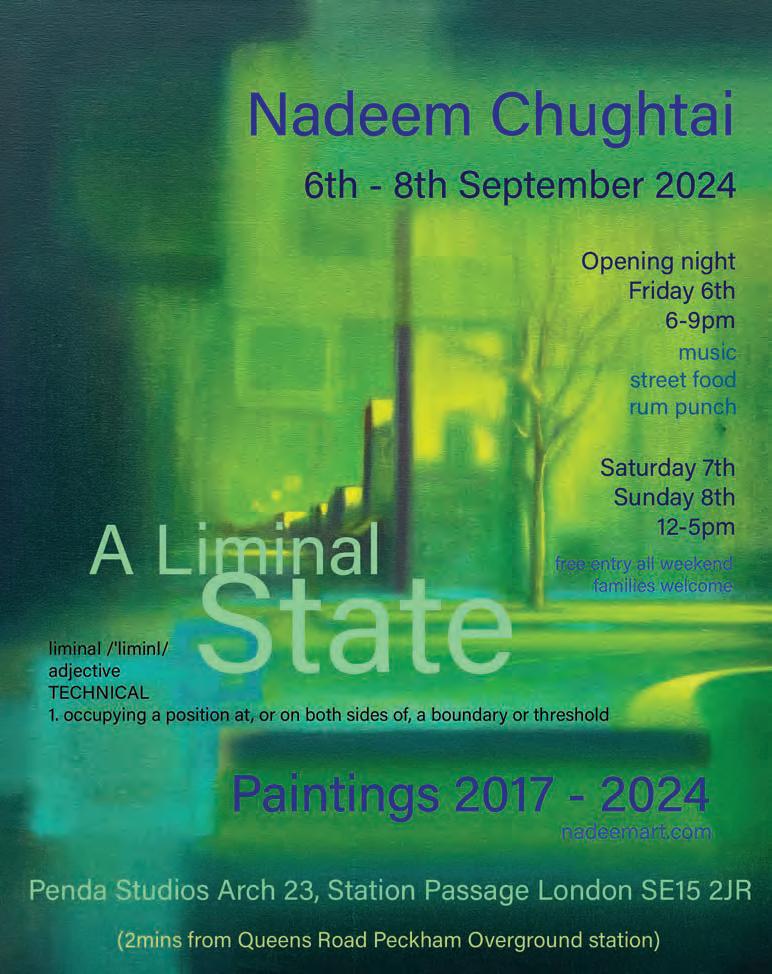
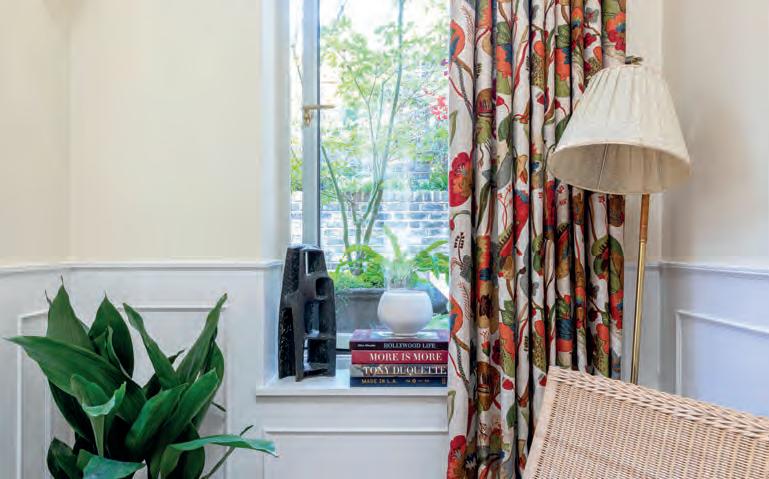

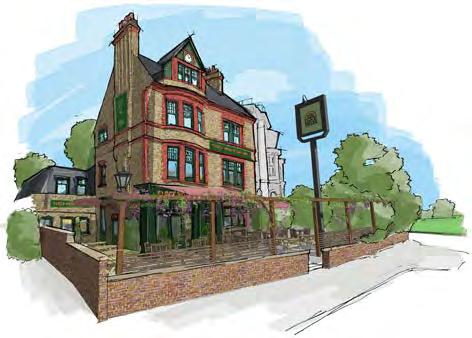
The Clock House Tavern is reopening this September.
Located next to Peckham Rye, the pub has been restored back to its finest splendour by Parched, the independent pub group known for pubs such as the Montpelier and the White Horse in Peckham, the Grove House Tavern in Camberwell and the Earl of Derby in Telegraph Hill.
The Clock House Tavern’s restored interior will feature oak panelling, antique mirrors, leather banquette seating and a dart board. With areas across two floors and outside, it will be spacious, while retaining all the atmosphere of a proper local pub.
As well as the main bar, the pub will feature a snug area with a fireplace and a back area for food and parties.
The “elegant” upstairs bar will offer sweeping views of Peckham Rye, which the owners said would provide a great backdrop for social gatherings and private events, as well as a perfect spot for Sunday roasts.
Outside, there is a large beer garden with mature wisteria, which will be a picturesque place in which to enjoy sunny afternoons.
The extensive drinks offering will have plenty of options to cater for everyone’s “usual”, with a focus on English cask ales, whiskeys, quality wines and cocktails.
Keeping things local to preserve the pub’s community feel, the Clock House Tavern will serve ales and beers from nearby London breweries.
On tap will be the likes of Gipsy Hill and Pillars Brewery, while other rotating beers will include Harvey’s Brewery, Timothy Taylor’s and Brockley Brewery.
Taking over the kitchen are the talented chef duo George Genn and Laurence Pengelly, also known as Gengelly’s.
Gengelly’s first Parched residency at the Earl of Derby opened to critical acclaim, and remains popular with diners.
Continuing this legacy, the menu at the Clock House Tavern will focus on “bold, unfussy and delicious” dishes. Expect
Paris 2024 proved a vintage Olympics for south-east London, with medals for local sportspeople Alex Yee, Daryll Neita, Imani-Lara Lansiquot and Andrea Spendolini-Sirieix.
Leading the way with a stunning gold medal in the men’s individual triathlon –as well as a bronze in the mixed team relay event – was Yee from Lewisham.
The 26-year-old trailed New Zealander Hayden Wilde by 14 seconds as he entered the final 2.5km lap of the running section of the event, producing a staggering finish to overhaul his rival in the final 200 metres and dramatically claim a gold medal.
“I’m so grateful to everyone who’s been in my corner for the past three years, that was for them,” Yee told the BBC after the event. “At 5km [of the running leg] I was going through a really bad patch and, with 2.5km to go, I thought: ‘I’m going to give myself one last chance at this and not give up’, and here we are.”
Having also won individual silver and relay gold in the last Olympics in Tokyo, Yee is now the most successful triathlete in Olympic history.
Meanwhile, south London’s Team GB sprint duo of Neita and Lansiquot came

close to winning gold in the women’s 4x100 metres relay, only to be denied by a mere seven-hundredths of a second by the United States team, anchored by the flamboyant Sha’Carri Richardson.
Neita and Lansiquot pronounced themselves satisfied with silver medals though, going one better than in Tokyo where they picked up a bronze in the same event.
“We wanted the gold so we were disappointed, but you can’t be unhappy with an Olympic silver medal,” Peckhamborn Lansiquot said after the race. “We showed that we’re consistent, that we believe in ourselves and I’m so proud of us.
Furniture lovers rejoice: the Midcentury Modern fair is returning to Dulwich this autumn, giving visitors the opportunity to snap up rare and iconic pieces from reputable dealers.
Held in the brutalist Christison hall at Dulwich College, the acclaimed fair will feature about 85 stalls showcasing a vast array of midcentury and contemporary pieces, including furniture, lighting, art, ceramics, glass and fabrics.
The fair takes place on 17 November from 10am to 4pm, with tickets costing from £0 to £11. For more information and to book, visit modernshows.com/shows
options such as grilled fish and steaks, seasonal flatbreads and fresh pasta, as well as the duo’s classic Sunday roast.
Neil Watson, a co-founder of Parched, said: “We are beyond excited to be opening the Clock House Tavern right in our community. The pub is in such a fantastic location, right on Peckham Rye. It has great history and so much charm.”
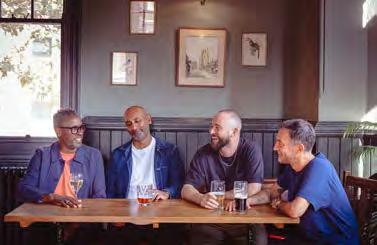

I was really happy with my leg and what we did as a team.”
Neita, who grew up in Lee and Ladywell in Lewisham, added: “No frustrations at all. It’s a relay and anything can happen and in among all the chaos we remained professional, got the job done and got the baton round. We came in in a really strong position and we left with a medal and I think we should be really proud of ourselves.”
In the individual sprint events Lansiquot reached the semi-finals of the 100 metres while Neita impressively reached the final of the 100 and 200 metres, finishing fourth and fifth in the two events respectively.

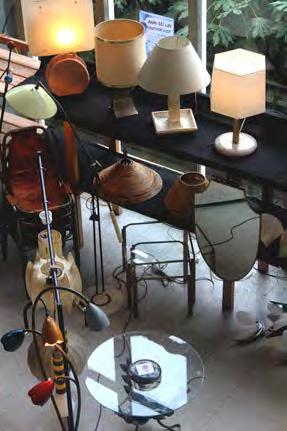
Meanwhile, the diver Spendolini-Sirieix, 19, won a bronze medal with her partner Lois Toulson in the 10-metre synchronised event. The Crystal Palace Diving Club star, who went to primary school in Brockley and secondary school in Bermondsey, also finished sixth in the final of the women’s 10-metre platform dive competition.
In an emotional interview after that competition, Spendolini-Sirieix said: “It’s the sport, it’s brutal, isn’t it? But I think that’s what is amazing and so beautiful about diving is that it can go either way.
“I’m so happy to be here, to be at the Olympic Games. It’s been a really long year. It doesn’t take away from my accomplishments this year. Just missing out on one medal doesn’t change who I am.”
Video footage of Spendolini-Sirieix’s proud father, Fred Sirieix – the renowned maitre d’ turned TV personality who is a local resident – consoling her after the individual event became something of a viral sensation.
Sirieix said of his daughter’s achievements: “She has had a super year... I am proud of my little girl. She has come here, she has come to Paris in the Olympics and she has got a medal.”
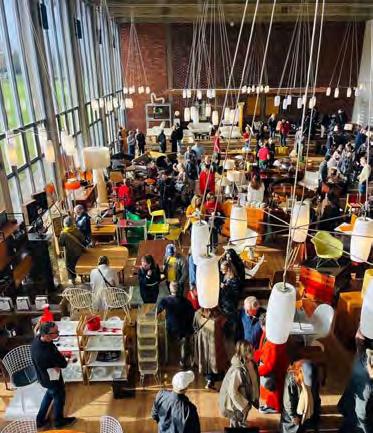
BY JUMOKÉ FASHOLA
Jimi Famurewa is a south Londoner through and through. Despite being born in Edgware and initially living in Wembley, where his family first settled when his mum came to the UK, all of his early memories are of south London.
“I went to primary school in Plumstead and all my youthful childhood memories are of Deptford Market and Woolwich,” he says. “And now I literally live 20 minutes away from where we grew up and went to school.”
An award-winning journalist and podcaster, Jimi will no doubt be a familiar face to many. Not only is he chief restaurant critic at the Evening Standard (a role he will be leaving this month), he is also one of a regular panel of highly esteemed restaurant critics on the BBC’s MasterChef.
He has written for a whole host of other publications too, including the Guardian, GQ and Empire, interviewing film stars such as Leonardo DiCaprio, Matt Damon and fellow south-east Londoner John Boyega, bands such as Arctic Monkeys and sports stars including Andy Murray.
Refusing to be pigeonholed either as a journalist or a critic is something he feels strongly about. “I’ve done so many different forms of journalism throughout my career, and I still do to be honest, but it’s rare. You can’t be blind to the fact that you’re often the only person that looks like me from my background. Representation matters. But things are kind of improving.
“I think back to the first filming I did for MasterChef, and broadcaster Amol Rajan [Radio 4’s Today programme presenter and University Challenge quizmaster] was there too. There are always people who have blazed a trail a little bit before you, and I think the battle is to always go in there and be yourself.”
He believes his early love of drama helped him overcome some of the challenges presented by appearing on a show like MasterChef. “I always loved improv and that kind of slightly high-wire aspect of performing,” he says. “When I was in sixth form, we performed at the Edinburgh festival and I felt I thrived with those challenges. So to find myself all these years later in these situations where I’m sort of being asked to improvise, that background gave me the confidence to be able to articulate my thoughts swiftly.”
Jimi’s interest in food also began at a young age and was inspired by his west African roots. “At home it was never just one meal,” he says. “Food was such a huge part of how we
lived, how we interacted, celebrated, soothed ourselves and welcomed people. It was all about food.”
The youngest of three brothers, he talks fondly of his mum, who would return home after working hard all day in her job at the Commonwealth Office. “Ah, my mum! I vividly remember she’d get in after work and my one task would be to get her slippers ready for her, so she could kick off her work shoes, get straight into her slippers and without breaking a stride, go straight to the kitchen to prepare food for us. That was how I knew how important it was to her that she was cooking for us and that we were having fresh, homemade meals.”
Having said that, Jimi and his brothers were never averse to a takeaway treat from McDonald’s or KFC. “We were real latchkey kids, because Mum was at work. And particularly in the summer holidays, we were left to our own devices.”
It meant the three siblings gained a sense of independence early on, though there were some mishaps along the way. “My mother has got very funny stories about me trying to cook frozen burgers and frozen pizzas in the toaster and causing all manner of damage!” Jimi laughs.
Now a parent himself, he reflects on how different his approach to food is with his own children. “You go through that whole sort of rigid regimen of, OK, this is when their breakfast is and this is when dinner time is and we have to get lunch down, because you’re trying to introduce steady routines with sleep and stuff.
“But I just realised that I grew up very differently. There was not one set mealtime when you’d eat. There were little snacks around, always someone ready to fry something up. And food was everywhere and everything. It was such a huge part of growing up.”
Though he was brought up surrounded by spicy Nigerian food, Jimi guffaws when asked how hot he goes. “Listen! There’s a growing body of video evidence of me sweating when people have served me hot dishes. I always maintain that I love heat but I don’t think it likes me as much as I like it! I love it so much that I’m on the verge of carrying a bottle of hot sauce with me everywhere!”
Though Jimi’s mum is a talented cook, he didn’t learn his own culinary skills from her. “My mum’s an incredibly innate, talented and skilled cook and quite a domineering character in a really lovely nurturing way. The kitchen was her domain, and as per Nigerian culture it was definitely very gendered. As boys and men, we weren’t really brought into the kitchen fold in the same way I saw my female cousins were. They were
FOOD WAS SUCH A HUGE PART OF HOW WE LIVED, HOW WE INTERACTED, CELEBRATED, SOOTHED OURSELVES AND WELCOMED PEOPLE. IT WAS ALL ABOUT FOOD

expected to stand and chop plantain and really help out in that way.”
Jimi has always loved cookery shows. “I really got into TV cooking shows as a teenager, attempting little things like baking some fish in a little foil parcel. I remember watching Jamie Oliver and it was a huge moment in my life to see cooking presented on TV as something that was achievable and cool. I find it very surreal now, to have worked with Jamie as a judge on The Great Cookbook Challenge on Channel 4.
“Cooking-wise, I started trying things almost independent of my mum and my family’s obsession with Nigerian food. I kind of gravitated towards food that was influenced by European cooking. So that was my route into cooking, really.”
His expansive palate means that whether he’s tasting food by contestants on MasterChef or reviewing a restaurant for the Evening Standard, his response can be more nuanced. “I think multiculturalism in this country is manifesting in so many interesting ways,” he says. “For example, we were filming [a few years ago] and I was tasting the food of a contestant who had made suya [a barbecued spicy meat dish] and fried yam and it was an amazing experience.
“Or if a contestant comes in and they’re talking about something related to their heritage, say a south Asian contestant talking about using a certain chilli or heat, and he’s got a different frame of reference for it.
ABOVE: JIMI FAMUREWA
“That’s when I’m so happy to be in the room and to be in the position I’m
in. Where I can hopefully speak to and find that common ground and really broaden the frame of experience, by being there as a voice saying, ‘I get this, I get what they’re trying to do.’”
Jimi has always been fascinated by stories of the African diaspora in London and the UK as a whole –particularly those of west Africans and Nigerians – which led him to write his book, Settlers: Journeys Through the Food, Faith and Culture of Black African London.
“It felt like a compulsion, like I had to write it,” he says. “I’ve always had an interest and curiosity in the culture that I was brought up with, and how that connects to the notion of being African as a whole, which in itself is problematic in some senses, because there’s huge divergence in one city in Africa, let alone across different countries.”
The book, which was published in 2022, explores the joys and triumphs as well as the tensions that exist within those communities. He sees it as a way to join the dots when it comes to the varied experiences of the African diaspora in London.
“Throughout my life I’ve naturally gravitated to these tales, because they spoke to my own personal story. I just wanted to delve into it and explore it a little bit, and learn more about that fascinating part of history – the kind being talked about within those communities but which hadn’t really been written about.”
Jimi Famurewa will be appearing at the SE London BookFest in November. To book, visit tiny.cc/seltickets



We love Christmas here at the Camberwell Arms, and we are delighted to announce that our bookings for Christmas 2024 are now open.
True to form, our festive menus are served ‘family style’ with generous portions for the table to share. We can cater to almost all dietaries with prior notice and menus are designed for two or more.
We are able to accommodate groups of up to 14 people in our main restaurant for your Christmas celebrations.
For big families and group gatherings of up to 50 guests, our private dining room is available for exclusive hire from 12-5pm or 6pm-midnight.
To book, please email: enquires@thecamberwellarms.co.uk


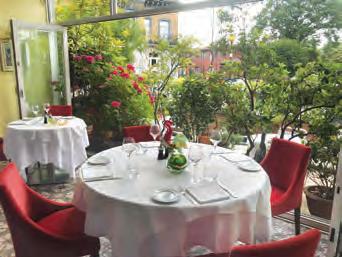

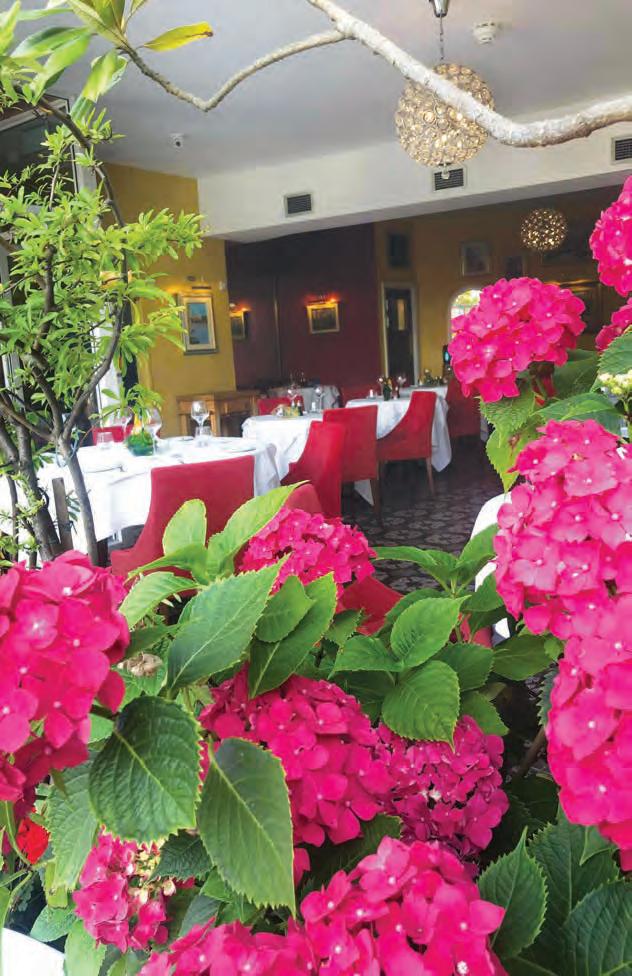
MEET THE LOCAL MAN ON A MISSION TO FIND AND RECLAIM LOST AND UNMAPPED PATHS AND OPEN THEM UP TO THE PUBLIC
BY LUKE G WILLIAMS
Writer and walker Jack Cornish possesses what the DJ Zoe Ball has called the best job title in Britain –head of paths for the country’s leading walking charity the Ramblers. “The job title is a bit overly grand, but I can’t disagree with Zoe Ball!” he tells me with a chuckle.
It’s a sign of Jack’s warm personality that our conversation is liberally sprinkled with such endearing chuckles. There’s a sense, I surmise, that Jack is a man who is satisfied with his lot, but one who also, in his modesty, can’t quite believe the life he is leading.
For Jack, who was born in Mottingham and has lived in various parts of south London his whole life, admits he has been living something of a dream existence since taking voluntary redundancy from the NHS in March 2017.
The next month Jack embarked on a 1,550-mile walk from Land’s End to John O’Groats, taking the opportunity of being between jobs to “shake things up and get away from
everything”. Having reached John O’Groats in September, he applied for a job with the Ramblers in November and got it. So within the space of just a few dizzying months his passion for walking had successfully segued into a dramatic career change.
“It was amazing,” he admits, a tone of rueful disbelief still evident in his voice. “I’m really lucky that such a great sequence of things happened to me. Some people think I get to go out walking every day as part of my job, which unfortunately isn’t the case, but it’s fantastic to be able to support our volunteers and get involved with all the amazing projects the Ramblers are involved in across the country.”
Jack initially joined the Ramblers to set up and lead the Don’t Lose Your Way project, an initiative to find and reclaim lost and undocumented paths across England and Wales. Already the army of volunteers enlisted and marshalled by Jack has identified 49,000 miles worth of paths that the Ramblers is now in the process of trying to register and save before a government deadline of 1 January 2031, after which old rights of way


We are a team of experienced osteopaths offering affordable healthcare to patients of all ages. As highly qualified experts in the field of paediatric osteopathy, we also offer specialist treatment for babies and children.
- Treatments available for patients of all ages
- Specialist paediatric osteopaths
- Cranial osteopathy available
- Safe and effective pain relief
- Full disabled access

A Sheltered home for the elderly in the heart of Herne Hill

Applications are now open for people over the age of 70 who are reasonably active and mobile and able to live independently but in need of companionship, support and healthy home-cooked food in a friendly community.
• Independent living within a secure setting
• Six comfortable 2-room flats and one studio flat, all with en-suite facilities

Appointments available with Nancy Nunn, Aidan Spencer, Chiara Ribera, Emily Starsmeare and Konstantinos Pitoglou 55 Hichisson Road, Nunhead, London SE15 3AN @NunheadOsteo


• Affordable, all-inclusive fees
• Pleasant communal dining area with large well-tended garden
• Optional programme of activities and events
• Strong links to the local community
based on historic evidence will no longer be able to be claimed.
The passion with which Jack discusses the project is laudable and infectious. “The project is still very much going on,” he explains. “We’ve recruited over 1,000 volunteers who are doing research into the histories of these paths and applying for them to be recorded, put on the map and opened so that the paths can be reclaimed and be there for generations to come.
“The deadline of 2031 sounds like quite a long way away, but it isn’t really when you’ve got such a huge number of paths which could potentially be put back on the map.
“From a practical and pragmatic perspective, getting these paths on the map increases the number of places we can go walking and public access to them. It makes our path network more connected, allowing people to get out more – and there’s a whole lot of benefits connected, including wellbeing and physical fitness.
“These are also paths that will take people to bus stops, to the local shops or the primary school in the next village – enabling people to walk more safely and getting more people out of their cars.”
Alongside his work for the Ramblers, Jack has somehow found time over the past few years to write his first book, which touches on many of the themes of the Don’t Lose Your Way project. Published by Penguin earlier this year, The Lost Paths: A History of How We Walk From Here To There is a wonderful read – by turns humorous, reflective, inspiring and informative.
“It came about when I was approached by an agent,” Jack explains. “They thought my work for the Ramblers might make a book. I wrote a sample chapter and outline and it all developed from there – it’s been a bit of a whirlwind, but it’s been really great.
“I hadn’t done much writing before to be honest, although like many people I had the idea in my head that I’d like to write something one day. From my perspective the great
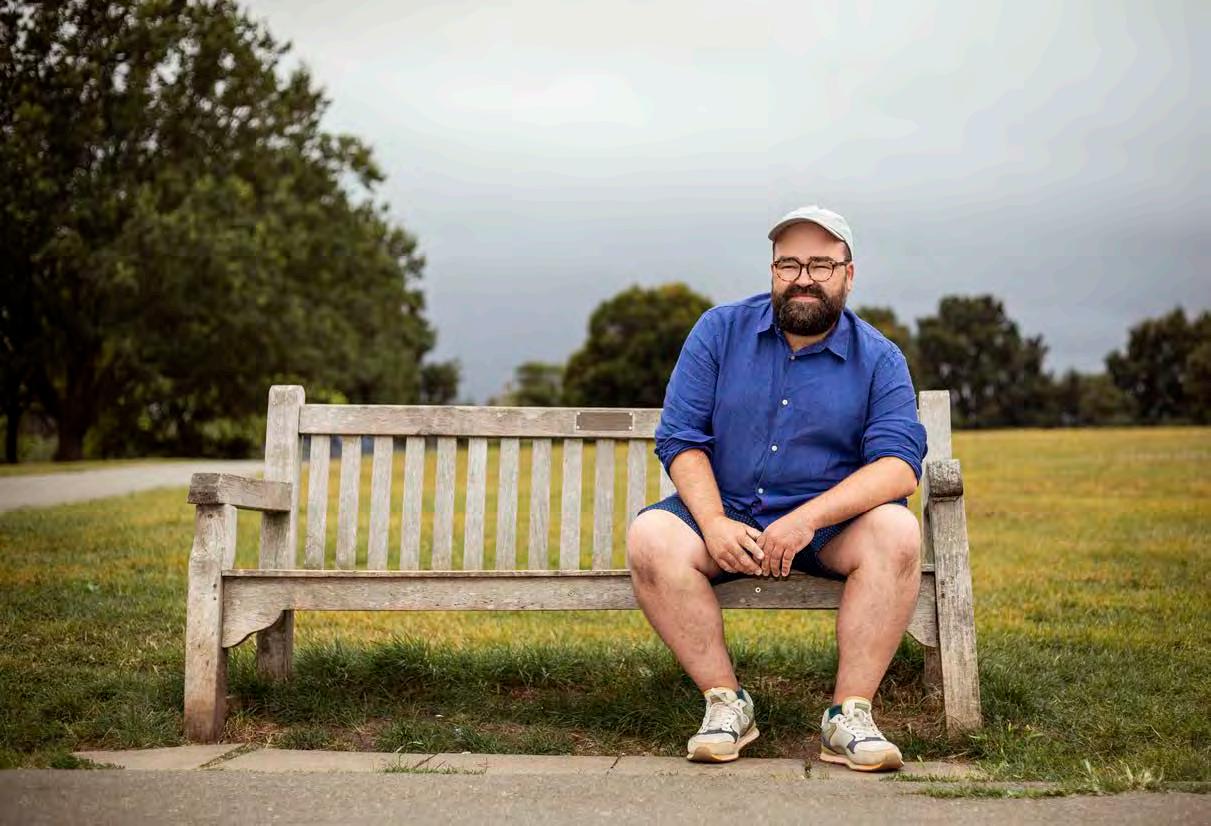
GETTING THESE PATHS ON THE MAP INCREASES THE NUMBER OF PLACES WE CAN GO WALKING. THESE ARE ALSO PATHS THAT WILL TAKE PEOPLE TO BUS STOPS, TO THE LOCAL SHOPS OR THE PRIMARY SCHOOL IN THE NEXT VILLAGE – ENABLING PEOPLE TO WALK MORE SAFELY

thing about writing a book like this is that you get to go down and explore so many side avenues and topics – branches off the main path so to speak. The challenge is to get to grips with those. It’s great to have the scope to write about what’s interesting, or what I think is interesting, that can be found along the paths – the histories and stories that emerge.
“The central thesis of the book is that when we’re recording paths we’re not just increasing the number of places where people can walk, but we’re also protecting a key and often overlooked part of our history. These paths are expressions of how ordinary people interact with their landscape.
“Towards the end of the book I make a comparison with listed buildings and scheduled ancient monuments – protecting and recording paths and public rights of way is a way of recording our physical and material history and protecting them from being blocked or developed.”
Greeted with universal acclaim, The Lost Paths has been longlisted in the nature writing category of the prestigious Wainwright prize. “It’s absolutely amazing to be longlisted,” Jack admits. “I’m not expecting anything more – and that isn’t false modesty. It’s surprising and really pleasing to be among those 12 longlisted books.”
Jack admits he would love to write another book in the future, though there are no “concrete plans” at present. His continuing and “potentially futile” quest to walk every street in London – documented on his website – would certainly make for a fascinating subject.
“I’ve done a lot of south-east London and central London, but there’s a lot of gaps further afield. I’ve also got a big A to Z that I’m gradually colouring in, which is very satisfying. People ask me how far into it I am and it’s not really mapped in a very scientific way, so it’s a bit hard to say really! Don’t get me wrong, I’ve done a lot, but there’s still a lot of suburban streets to do in the likes of Tooting and Ealing.
“Even if you’ve lived in London for years and years there are so many parts of it you don’t visit because there’s no one you know who lives there, or you don’t work there. With this project I get to explore so many parts of London that I would never have ventured to otherwise. You never know what’s going to be down some of these roads!”
I ask Jack to give our readers some tips for invigorating and inspiring local walks. “We’re so lucky with the green spaces we have locally,” he enthuses. “I love doing loops from my house through Nunhead Cemetery and Peckham Rye Park. I also love the green space around Dawson’s Hill and the cool estate up there. Going into Dulwich Park when the rhododendrons are out in the American garden is amazing.
“The other walk I’d like to give a shout out to is the Brockley Three Peaks – that’s a route of about two miles, which takes in One Tree Hill, Blythe Hill Fields, Hilly Fields and the cemetery as well. It’s a great walk with great views.”
Jack Cornish will be appearing at the SE London BookFest in November. To book, visit tiny.cc/seltickets
PHOTOS BY JULIA HAWKINS
With its abundant green spaces and dog-friendly businesses, Dulwich is an ideal place for dog owners and their four-legged friends. Our photographer Julia Hawkins recently spent some time in and around the parks of Dulwich, where she captured a snapshot of a dog’s life.












Rosemead Preparatory School and Nursery, Dulwich, south London, is celebrating after a triumphant year, which included a brilliant report from the Independent Schools Inspectorate (ISI) and a Good Schools Guide review, which commended the school as the ‘one to watch’.
The ISI inspection praised Rosemead’s ambitious approach to learning, pastoral care and the support of individual pupil progress, as a consequence of the positive influence brought to bear by the school’s values, vision and leadership.
‘A highly customised approach to every pupil’s academic progress is a significant strength of the school,’ the report explained. ‘A customised learning programme in mathematics, English and reasoning caters for pupils in Year 4 and above. This, supported by an extensive enrichment programme and much support for individuals, impacts on all groups of pupils, enabling them to make good and often rapid progress over time.’
Speaking about the report, Head of Rosemead, Graeme McCafferty explained: ‘I am absolutely thrilled with our outstanding recent inspection report’ ‘One standout strength that truly shines through is our highly customised approach to every child’s academic progress. The report highlighted our dedication to tailoring personal learning programs for each child, particularly in Maths, English, VR, and NVR.’
Graeme added: ‘What’s more, our extensive learning support programme ensures that every individual in our school community not only succeeds but thrives. This recognition reaffirms our commitment to providing the best possible


education for every child at Rosemead, and I couldn’t be prouder of our school’s achievement.’
Rosemead’s early years’ provision was also praised in the summary findings. ‘Leaders in the early years effectively ensure staff have high expectations of the behaviour and achievement of children,’ the report found. ‘The positive relationships between adults and children in the early years help children settle in quickly and feel safe and happy.’
It added: ‘Children in the early years achieve well from their varied starting points. Adults engage with the children

effectively and use appropriate questioning to develop children’s vocabulary and understanding. Children from an early age become confident speakers and develop their reading skills well.’
The report comes at an exciting time for Rosemead. Last year, the school announced a merger with St Dunstan’s College joining St Dunstan’s Education Group.
Head of the group, Nick Hewlett, said: ‘The whole community is delighted with the ISI inspection for Rosemead. The report rightly recognises the outstanding education Rosemead is offering as one

of south London’s leading prep schools. Bringing our schools together has been a wonderful opportunity, allowing our staff and students to work closer together, learning from one another and enhancing the educational journey of our pupils. Rosemead is also celebrating after a visit from the Good Schools Guide which praised the school’s leadership and its future direction.
‘With a head and staff who are emotionally engaged with, and academically ambitious for, their pupils, there is no doubt that children here are happy and make excellent progress,’ the review explained. ‘They (pupils) are attentive, polite and delightfully entertaining.’
The review adds: ‘A parent told us, ‘At the age of four, it is impossible to know who your child will be or where his or her interests and strengths will lie at 11.’ Here, the school, parents and children go on that journey of discovery together, so that when the time comes the right choices are made.
‘We think Rosemead is definitely ‘one to watch’ as it carves out a specific niche in this corner of London.’
In June, the school was also delighted to receive an award at the prestigious Education Choices Award, winning for best Improvements in EDIB (Equality, Diversity, Inclusion and Belonging).
Speaking about the news, Head Graeme said: ‘The whole school is thrilled to receive this award. This recognition reaffirms our commitment to providing the best possible education for every child at Rosemead’
‘My heartfelt thanks go to the staff, pupils and parents who have been on this journey with us across the last year.’

BUSINESS HOP BURNS & BLACK IS 10 THIS YEAR. ITS OWNERS TELL US HOW BEER, HOT SAUCE AND VINYL PROVED A RECIPE FOR SUCCESS
BY MIRANDA KNOX
Boasting one of London’s best selections of beer, natural wine and hot sauce, there are few places better equipped to host a party than local bottle shop Hop Burns & Black –which is convenient because this November marks the store’s 10th anniversary.
Local couple and co-founders Jen Ferguson and Glenn Williams set up their shop on East Dulwich Road in November 2014, after moving to the area the year before and falling in love with the neighbourhood.
In the decade since, the business has gone from strength to strength, with an online store set up in 2016 and a second walk-in shop established in Deptford in 2018.
Speaking to the Dulwich Diverter about reaching such an impressive milestone, Jen says: “We’ve been celebrating all year long because we like a good party.
“For our 10th anniversary we’re doing 10 collabs. We kicked it off at the start of the year with a couple of beer collaborations – one with a brewery called Elusive, another with a brewery called Two Flints.
“We’ve also just released a new hot sauce – our first ever brown breakfast sauce made with beer. We’ve got a wine for the first time, too.
“We’ll have 10 in total and will top it off with a trio of collaborations we tend to do every year around the hop, the burns and the black – so a hoppy beer, a hot sauce and a dark beer. We’re quite excited about who we’re doing those with, which will be revealed in due course. There’ll be a big party for that.”
The business, which is run by a core team of seven staff including Jen and Glenn, is essentially a tribute to their own personal passions, or as they put it, “a celebration of the world’s three greatest obsessions”: craft beer (the hop), hot sauce (the burns) and vinyl records (the black), though the last element has now been replaced with coffee.
It was a novel and relatively unusual mix at the time the shop opened – but it has worked very well. Jen says: “We never set out to be a ‘cool shop’ – we just did what we really liked.
“When we first opened everyone just knew us as the beer shop and would come in for beer and be surprised that we had a big wine

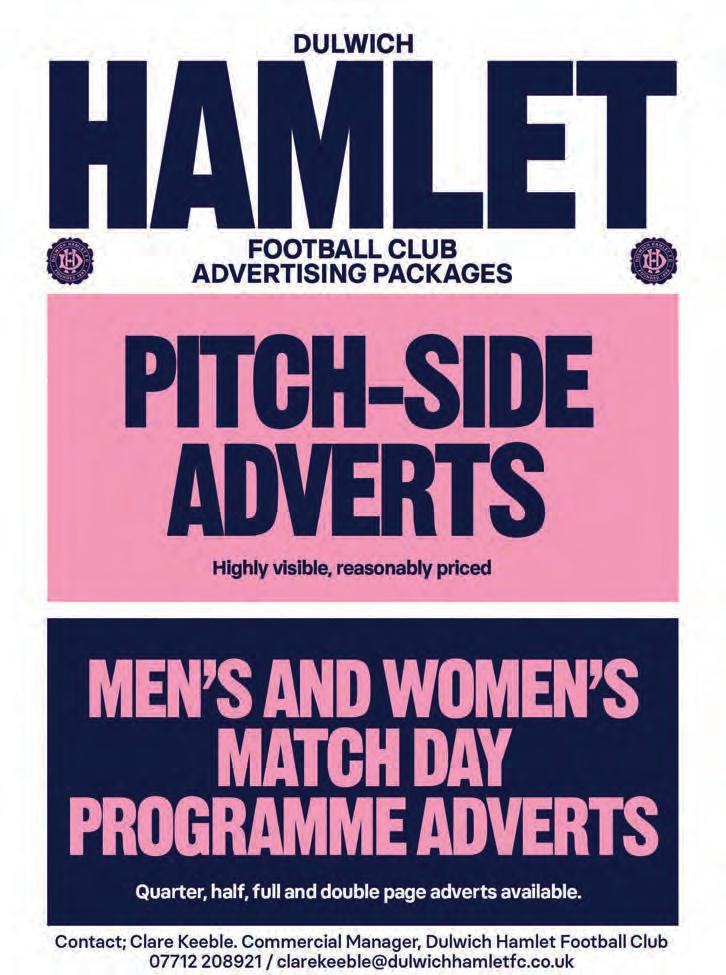
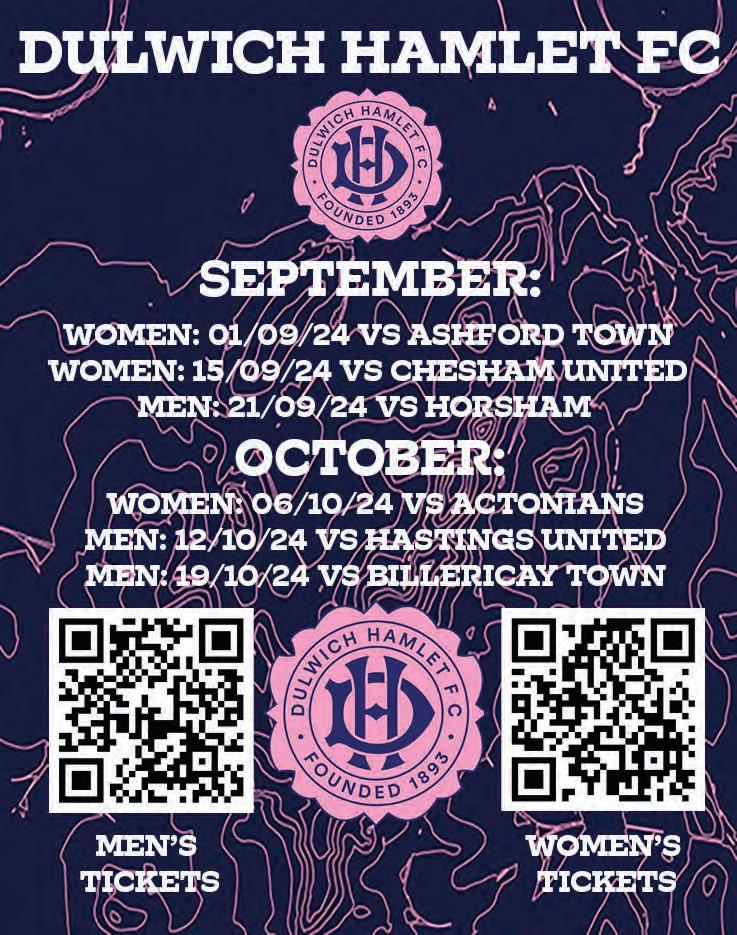
section, and would then be perplexed by the massive wall of hot sauce.
“A lot of people share these obsessions. People can get quite nerdy about things like really good coffee, and Glenn and I are just a couple of geeks.”
To mark their 10th birthday, the pair, who are both from New Zealand originally, have also found a way to incorporate one of their other great loves into their business celebrations: their cat.
Jen says: “All of the collaborations this year are also centred around our cat, Neko. He is the joy of our lives, so it’s all cat themed. The first beer was called Cat To The Future [a west coast pale ale by Elusive], the second was Mr Fluff [A Two Flints hazy IPA], and we’ve got another one coming out called Have You Seen This Cat?”
If you told Jen and Glenn this is what they would be doing 15 years or so ago, they may have been pleasantly surprised. Neither of them have a retail background by trade – but their love and passion for the area and what they do has proved the secret to their success.
Jen says: “Glenn might have once had a holiday job working in a plant shop as a teenager, but that was about it! Before, I was working in public relations and Glenn had been a radio host in New Zealand, and when we came over in 2012 he segued into online video.
“Neither of us were particularly loving what we were doing and so we started thinking about what we did love. The answer was craft beer, hot sauce and vinyl records.
“We’d just moved to Peckham at the beginning of 2013 and we loved living in this area. It was around the same time that the Peckham Peculiar started too, and we just realised it was a great community to be part of. We thought, how could we become part of it even more? We were really lucky to have some really great mentors to help with all the basic stuff.”
The biggest challenge initially was finding the perfect location. Jen says: “That took a bit of time, and when we found the spot on East Dulwich Road it was being renovated so we needed to wait before we could move in.
“For us it’s great because it’s in between two parks. You’ve got Goose Green at one end and you’ve got
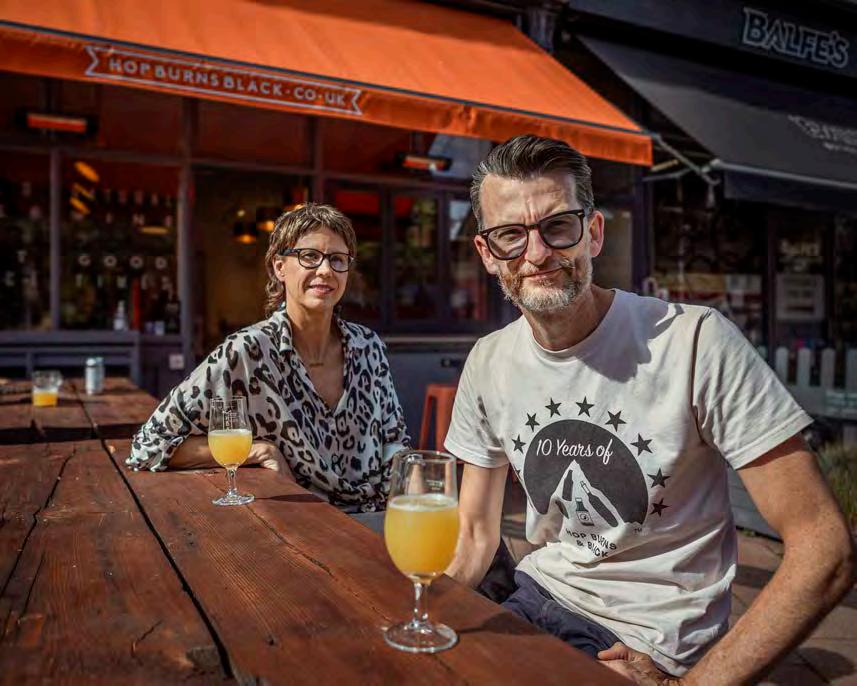
Peckham Rye at the other, so there’s always lots of dog walkers, people coming back from work. It’s not Lordship Lane, but we’re ridiculously lucky that we’ve got a forecourt area you can do things with. It’s a really beautiful parade of shops.
“When Papa Johns left earlier this year there was an incredible ghost sign of the shop next door and it made me really interested in what had been on the street before.
“I think our shop directly before was a launderette and in the past it has been all sorts of things – piano lessons were held here and it was a stationer at one point, too. The whole parade has a history of independent shops coming and going.”
While they were initially predominantly known for their craft beer selection (they boast up to 350 at any one time), the hot sauce market has also seen a boom, with programmes such as Hot Ones (“the show with hot questions and even hotter wings” hosted by Sean Evans) bringing sauce into the mainstream.
The YouTube show has featured a slew of celebrities, including Paul
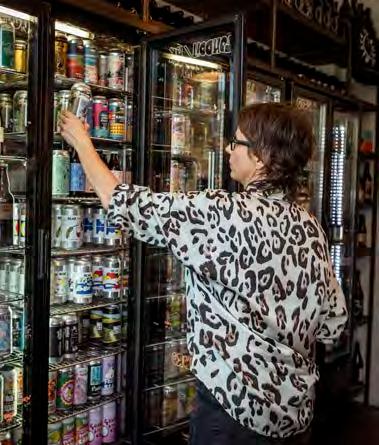
Rudd, Jennifer Lawrence and Gordon Ramsay, answering questions while sampling 10 different sauces, going up the scoville scale of spice.
It’s so popular that Hop Burns & Black even does a Hot Ones mega mix pack of sauces from the show, “from mild through to palate-scorchingly, insanely hot”. They include Da Bomb, which is known for bringing down even the toughest chilli fans.
Jen says: “Hot Ones has been so huge for hot sauce generally and massive for our business. It’s the biggest side of our online business. Our web shop sells more hot sauce than anything else, over 50%.
“Hot sauce 10 years ago was heavy metal branding and ‘how hard are you! How hot can you go!’ but people have come round to [the fact that] it’s actually much more about flavour. It’s not just about blowing your taste buds, it’s about exploring all these interesting flavours.
“It feels a little bit like how the craft beer scene did in its infancy. You’ve got these people getting really excited, setting up their sauce operations in their kitchens and sheds, which is

great. The local hot sauce scene is really exciting.
“Da Bomb is an interesting one because it’s not the hottest one technically, but it is absolutely the sauce that destroys everyone. People always take it as a dare, thinking it can’t be that bad – but it is!”
What has remained steadfast since they founded the business is the duo’s commitment to supporting independent brewers.
“We’ve made choices that probably haven’t been the smartest in a purely financial sense, but we’ve always been passionate about championing independent breweries,” Jen says.
“We’ve been thinking as we’re approaching 10 years, we’ve been able to do everything the way we wanted to do it,” she adds. “If we had to close down tomorrow I don’t think there’s anything we don’t feel really proud about.”
Discussing the location of their Deptford store, which turned six in June, Jen says: “Glenn and I went walking when we first moved to Peckham – we did this massive early spring walk and went all round the Thames. We ended up at the Dog and Bell, and thought, where the hell are we?
WE WANTED –TO QUOTE THE LEAGUE OF GENTLEMEN –A LOCAL SHOP FOR LOCAL PEOPLE, AND WE DID IT
“That was the first time we discovered Deptford. We kept returning over the years and thought it would be a really great spot. It’s again just one of those places that has a fantastic community.”
As for the next 10 years, Jen says: “The outlets are still growing every year, especially online. If the right place came up we might do another outlet, so we’re always kind of on the hunt, but we’re also really happy with the way things are.
“When I went back and looked at our original business idea this morning, [it showed how] we wanted to create a community hub. We wanted – to quote The League of Gentlemen – a local shop for local people, and we did it.
“One of the things we hoped we’d get from running a business in the local community would be to be embedded within that. It feels really old-fashioned and nice to walk down the street and know people by name. It doesn’t happen that often and I don’t think I’ve ever had it before moving here.”
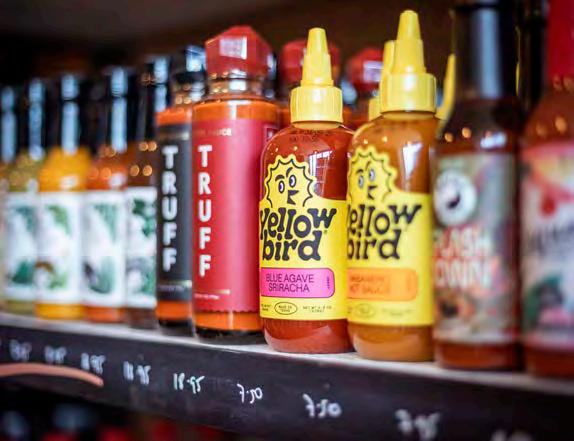
BY LUKE G WILLIAMS
Enigma. Maverick. Showman. Whatever epithet you apply to Christopher Livingstone Eubank inevitably falls short in the task of adequately describing the most unique British sportsman of his – or perhaps any – generation.
I grew up idolising the Dulwichborn and Peckham-raised pugilist, so when my phone rang this summer and the unmistakably sibilant voice on the line informed me: “Good afternoon, this is Chris Eubank,” it was as thrilling a moment as any I’ve experienced in my journalistic career.
Eubank’s eccentricity, his studious insistence on remaining true to himself and his capacity to become embroiled in unrelenting ring wars captured my imagination and love of a rebel when I was a boxing-mad youngster.
But Eubank – who has just turned 58 – was never a conventional maverick, as he emphasises to me at one point during an hour-long interview that encompasses topics as varied as Peckham, poetry and philosophy.
“I have a different hold, a different way [about me],” he says. “I was never ill-mannered, I was never rude. I didn’t break any social laws. I was always charming, I was always straight.
“Look at other people, look at their social media; if you adopt the ways of society in terms of establishing yourself, you will do what the herd does, which is use bad language and be inconsiderate. I have been successful without being foul in terms of my behaviour.”
It’s a point well made; when we talk of mavericks in sport, names such as George Best, Paul Gascoigne and Tyson Fury immediately spring to mind, figures whose unconventionality is – in a sense –quite conventional, adhering to the cliche of hard drinking and hard living, being mistrustful of authority and outrageous in terms of behaviour.
Eubank is that rarity – a genuinely unconventional spirit, rather than someone who is merely conventionally unconventional. As such, large swathes of the British public have often not known how to receive him, opting instead to ridicule or denigrate him.
It is worth remembering that Eubank’s sporting achievements were considerable – in a 13-year professional boxing career he was undefeated for 10 years, a world champion for more than five and participated in contests against the likes of Nigel Benn and Michael Watson that are written into fistic folklore.
For Eubank, however, the question of legacy is inextricably linked

I
STILL GO TO PECKHAM AND BRIXTON ALL THE TIME... IT’S NOT ABOUT PLACES OR POSTCODES. YOU LIVE WHERE YOU SIT, YOU LIVE WHERE YOU
LIE, WHERE YOU WALK. IT’S ABOUT NOW. YESTERDAY IS NOT COMING BACK AND TOMORROW MAY NEVER COME. YOU HAVE TO LIVE IN THE MOMENT
wayward and criminal behaviour, as well as repeated suspensions from school.
Aged eight his mother and father split up, with his mother moving to the US, leaving Eubank and his older brothers David, Simon and Peter in England.
After attending Bellenden Junior School, Eubank later moved on to Thomas Calton Secondary School on Adys Road. “It’s well documented,” he says of this portion of his youth in Peckham. “I was suspended [from Thomas Calton] 18 times in one year. I was a rebel, a Rasta and looking to find my way.
“The shoplifting, all the adolescent wayward behaviour – Peckham was a stomping ground through which I learned how to do things with style and creativity.”
After moving to Peckham Manor Secondary School, from which he was expelled after a month, Eubank was taken into care and spent spells in a number of children’s homes, including Karib in Nunhead and Davy’s Street in Peckham.
After a period of homelessness, when he survived by shoplifting and spent “many a happy night napping on car seats in Peckham, Camberwell and the Elephant and Castle”, the 16-year-old Eubank moved to the Bronx to join his mother.
Boxing and the Bible arguably saved him from becoming a bleak statistic of juvenile delinquency. While living in New York, Eubank became hooked on boxing training and went to the gym every day, working as a caretaker to pay his way. After winning the Spanish Golden Gloves as an amateur, he turned professional in 1985, fighting five times in the US before returning to the UK and basing himself in Brighton.
Eubank says: “It dawned on me that breaking the law was stupid, backwards and counterproductive because you can’t beat that system. I knew I had to do something legal.
Initially, few took Eubank seriously – boxing scribes found his refusal to conform to the usual clicheridden rhetoric of the conventional sportsperson mystifying, and his pronouncements that he would ascend to world class were treated with disdain.
However, on the unforgettable night of 18 November 1990 at the NEC in Birmingham, Eubank proved all the doubters wrong by wresting the WBO world middleweight title from the fearsome Nigel Benn.
From then on, Eubank became a phenomenon, with his rematch with Benn just under three years later –which ended in a draw – attracting a worldwide audience that was estimated at 500 million.
Decades later, looking back through the prism of all he has achieved, I am keen to discover how Eubank feels on the occasions when he once again walks the south London streets where he grew up.
“I still go to Peckham and Brixton all the time,” he admits, before rejecting any notion of sentimentality when he reflects on the youngster he once was.
“It’s not about places or postcodes. You live where you sit, you live where you lie, where you walk. It’s about now. Yesterday is not coming back and tomorrow may never come. You have to live in the moment.”
As well as a man with a clear and consistent world view, Eubank is also keen that his ideas should help and inspire others. He sees poetry – specifically three poems he refers to as “scriptures” – as particularly essential in instilling good morals and a positive mindset in young people.
to personal integrity, rather than ephemeral sporting glory or statistics.
“All of the accolades merely allow the individual to show if they are righteous or not,” he stresses.
“The [boxing] belts bring a spotlight – if you’re wearing a belt people are entitled to ask: he’s wearing the belt, what is his behaviour? Behaviour shows if someone is a real champion.”
Born in East Dulwich on 8 August 1966 to Jamaican immigrant parents, Eubank’s initial prospects in life were not bright. His family were poor and his youth was characterised by
“At that time I was in high school in New York and I was training to be a secretary. At the same time I was an amateur boxer. I realised I could always go back to being a secretary, so I put my mind, my concentration, my sinews and my prayers into one basket and I chose boxing as that basket.
“I came to an understanding that if I used the principles that my mother brought me up by, which was the metaphysics of Biblical verse, then I could do it.
“What the Bible – Basic Instructions Before Leaving Earth – teaches you is how to get what you want before you have it in your hands. I applied metaphysics to boxing to establish my style, my movement, my understanding of the art and craft of boxing. The book directed me.”
The first of these poems – If by Rudyard Kipling – he quoted in the ring after suffering his first professional defeat in 1995 against Steve Collins. He recites passages from If – as well as his other two favourites, Desiderata by Max Ehrmann and The Man in the Glass by Peter Dale Wimbrow Sr – to me with fluency and feeling.
“If these poems are committed to memory by young people, they put a compass inside them that ensures it is almost impossible for them to stray from a sure and good track,” he concludes.
“Learning these three poems is powerful beyond measure. If you want to be fulfilled you have to learn these poems. Words are law. But they have to be written on your template, your heart, your mind.”
Soon after speaking these words Eubank is gone and, having spent an hour in his enlightening and inspiring company, I am left feeling that perhaps the most apt description of this complex and compassionate character would be that of “philosopher”. Somehow, I think it’s a sobriquet he would approve of.


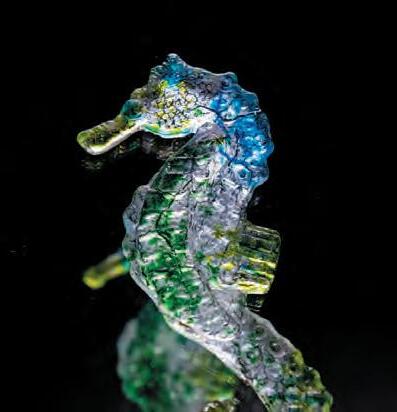

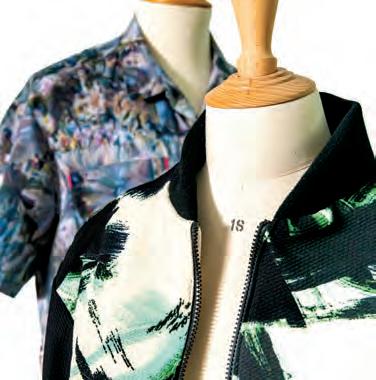

BY JANE MERRICK
The end of one season is always wrapped up with the beginning of the next. In September, I am harvesting apples, autumn raspberries and blackberries, and waiting for pumpkins and quinces to be ready in October.
But I am also thinking ahead to next year, and am starting to prepare beds for autumn planting of garlic, onions, peas and broad beans, all of which can be overwintered in southern England.
You can plant any of these vegetables in spring, but garlic in particular needs an extended period of cold temperatures to help the bulbs to swell, which is why it is a good idea to get them in the ground in autumn to make the most of winter.
There is also something cheering about seeing green shoots growing in the middle of January, when the fruit trees are bare and most of the plot is black soil.
Order garlic bulbs now to plant before the end of October, while the ground is still warm enough for them to put on growth for a few weeks.
Choose an autumn-planting variety –last year I planted Carcassonne Wight, which is a hard-neck variety with porcelain white cloves, and Rose Wight, which has a pinkish tinge. Hard-neck varieties are hardier than soft-neck ones, but do not store as well once harvested.
If the conditions are right, garlic is one of the easiest crops to grow. It arrives as garlic bulbs that you split into individual cloves. Plant each clove about 2cm deep in the soil, 10cm apart in rows that are 45cm apart.
You might need to cover the bed with netting to keep the birds and squirrels off. After a couple of weeks, each clove should sprout a green shoot.
This growth will slow down in December and January, but don’t worry as beneath the soil your garlic clove will be hard at work starting to develop into bulbs to harvest within months.
Apart from keeping the bed weed-free in spring, you don’t need to do much


to the garlic until it is ready to harvest, which will usually be in July.
Hard-neck varieties are ready to pick when the stalks turn beige and crispy, while soft-neck crops will flop over.
The garlic I planted last autumn did really well through winter and spring, and the bulbs grew to a good size. But we had so much rain throughout spring and early summer that I noticed a bit of mildew on the skins in early June.
I dug up the whole lot to avoid the problem getting worse, even though the stalks were still green, and laid them out on a drying rack in the sun for about a fortnight.
They can still be used for cooking in this state, but it is a good idea to bring them indoors and keep them in an airy, cool space to completely dry out.
When she’s not on her allotment in East Dulwich, Jane Merrick is policy editor at the i paper. Follow @jane.merrick on Instagram and read her blog at heroutdoors.uk

There’s something super slick about serving cups of ceviche – look at me with my confident seafood serve! This is full of electric flavours that ricochet around the palate, while the prawns remain plump and refreshing, just cooked by the lime juice. You want very fresh prawns from a fishmonger for this recipe, and I find the special trip part of the pleasure of prepping.
Maximise their value by freezing the heads and shells for stock.
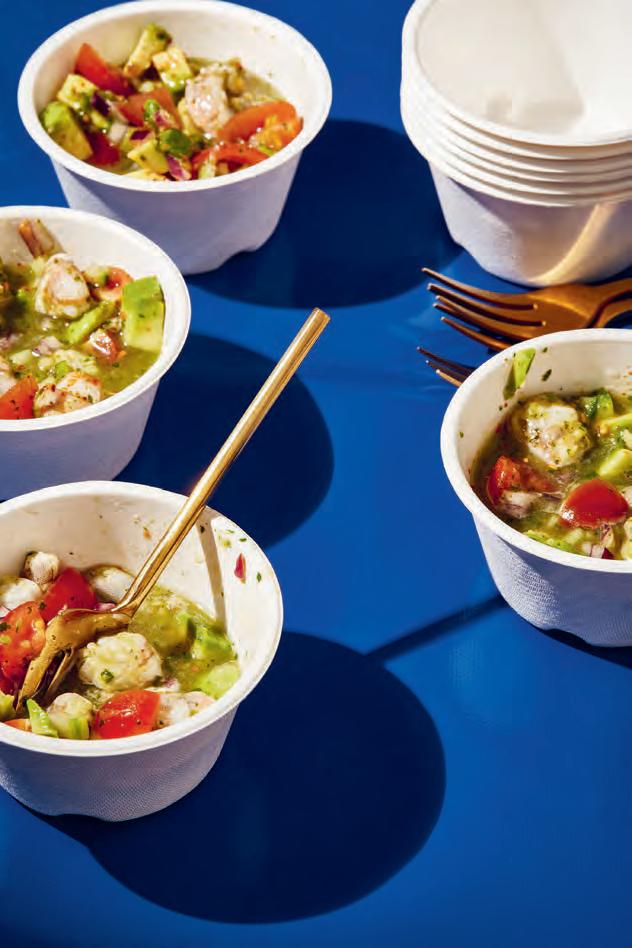
The prawns can be deveined, diced and stored in the fridge a couple of hours in advance. Don’t marinate the ceviche for too long, as the lime juice will “cook” the prawns too much and the dish will lose its freshness.
COOK AND ASSEMBLY TIME
30 minutes, including prawn deveining.
EQUIPMENT
Cocktail stick, small blender, small paper cups or bowls.
METHOD
1 Devein the prawns first. The easiest way to do this is by using a cocktail stick. First, twist the head off the prawn, then peel off the body shell and legs. Hold the prawn up, the right way up, so that
• 450g raw king prawns
• 250ml lime juice
• 2 fresh green chillies
• Large handful of coriander leaves, chopped
• 20 small cherry tomatoes, quartered
• ½ small red onion, diced
• 1 tablespoon Tajin seasoning (or chilli powder)
• 2 ripe avocados, stoned, peeled and finely diced
• ½ cucumber, deseeded, peeled and finely diced
• 1 garlic clove, grated to a paste
• Generous pinch of flaky sea salt
it’s curled in a natural shape. Along the back of the prawn, you will see a black line – this is the intestinal tract. Insert the cocktail stick at the top of the prawn, skewering it width ways, and pull upwards until the tract comes out. You can then pull gently to remove it (there are plenty of videos online if needed). Give the prawns a rinse to ensure there’s no remaining intestinal tract, then chop into evenly sized pieces (not too finely).
2 Blend half the lime juice in a small blender with the green chillies and coriander. Combine with the prawns and all the other ingredients, mix well and refrigerate for 20 minutes or up to 1 hour.
3 Serve the ceviche in small paper cups or bowls.
7 Across is someone associated with Dulwich. ACROSS 7 EERIELEVELS (ANAGRAM) (5, 6)
9 KIDNAPPED (8)
10 RUT, FURROW (6)
11 BRIEF, CONCISE (5)
12 ROMANIA’S CAPITAL (9)
14 LESS EXPENSIVE (7)
16 THE BEST (7)
18 GAME BIRD (9)
20 DEMON (5)
21 SPRING FLOWERS (6)
22 PASTA FOR CHEESE SAUCE (8)
24 LAYOUT, ORGANISATION (11)
DOWN
1 HACKNEYED PHRASE (6)
2 RECALLED (10)
3 PERMIT, ALLOW (3)
4 CLOUDY (8)
5 ON TO DRY LAND (6)
6 NOT PREDICTED (13)
7 BACK, SUPPORT (7)
8 FRAGRANT (5-8)
13 WORKED CLOSELY TOGETHER (10)
15 SWEAT (8)
17 LEAVE HOME (4, 3)
19 PUT NEW AMMO IN (6)
20 TRADER (6)
23 PRINTING FLUID (3)
8
ACROSS: 7 Ellie Reeves, 9 Abducted, 10 Groove, 11 Terse, 12 Bucharest, 14 Cheaper, 16 Optimum, 18 Partridge, 20 Devil, 21 Tulips, 22 Macaroni, 24 Arrangement. DOWN: 1 Cliche, 2 Remembered, 3 Let,
Marlon Patterson is a footballer who has primarily played as a left-back.
Born in London, Patterson played for the Millwall and Chelsea youth systems, then signed for Dulwich Hamlet in late 2004 after periods with Fisher Athletic and Carshalton Athletic.
He went on to sign for Dagenham & Redbridge in August 2007 from Yeading. During the 2007-08 season, he had a short loan period with Welling United before joining Grays Athletic in February 2008.
Patterson signed for Histon in January 2009 and went on to Chelmsford City, Bromley and Thurrock. He re-signed for Bromley at the start of the 2011-12 season, before being released at the end of the 2012-13 season.
After a spell with several other clubs, Patterson returned to Dulwich Hamlet for the start of the 2014-15 season, with the signing being funded by the Dulwich Hamlet 12th Man scheme. For more on the history of the Hamlet, visit thehamlethistorian.blogspot.co.uk
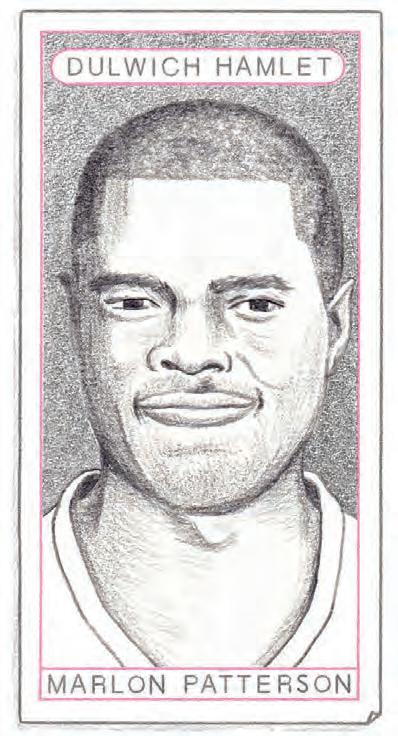
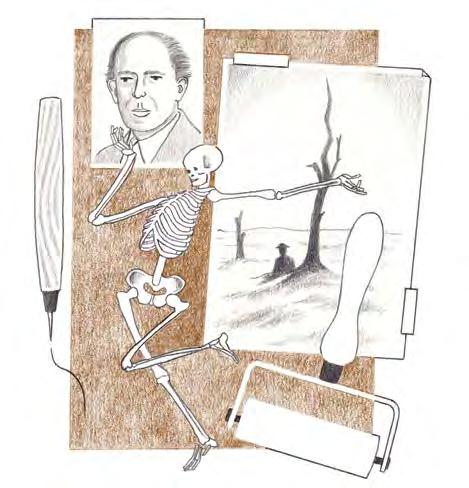
The artist Percy Delf Smith worked in engraving, painting, lettering, calligraphy and book design. Born Percy Smith in Dulwich in 1882, he studied at Camberwell and the Central Schools of Arts and Crafts. His teacher in lettering at Camberwell was Edward Johnston, the “father of modern calligraphy” who redesigned the iconic roundel symbol of the London Underground.
Delf Smith established a career as a lettering artist and teacher. In 1928 he married the botanist Ellen Marion Delf, with both changing their surname to Delf Smith. His wife’s friend Margaret T Martin described their union as “the happiest of marriages”.
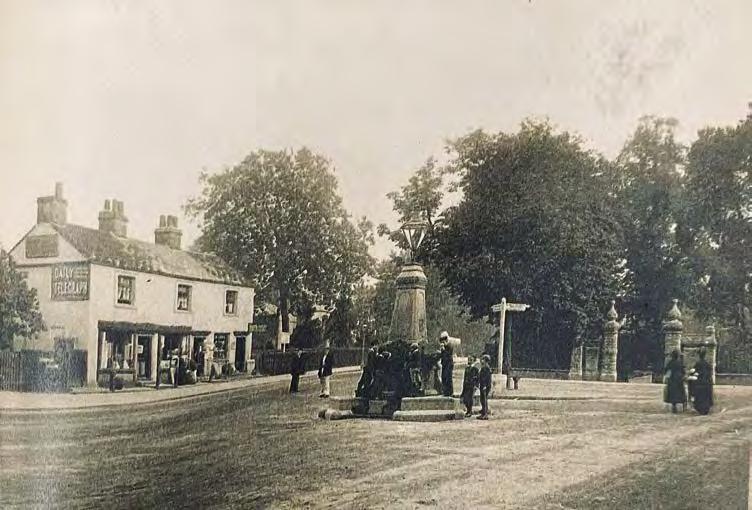
The French Horn Inn, previously called the Bricklayer’s Arms, became the French Horn in 1755 and was used as a coaching inn. It ceased to be a tavern in 1814 and the site today is occupied by a house.
OPENING WEEKEND 20TH
SEPTEMBER
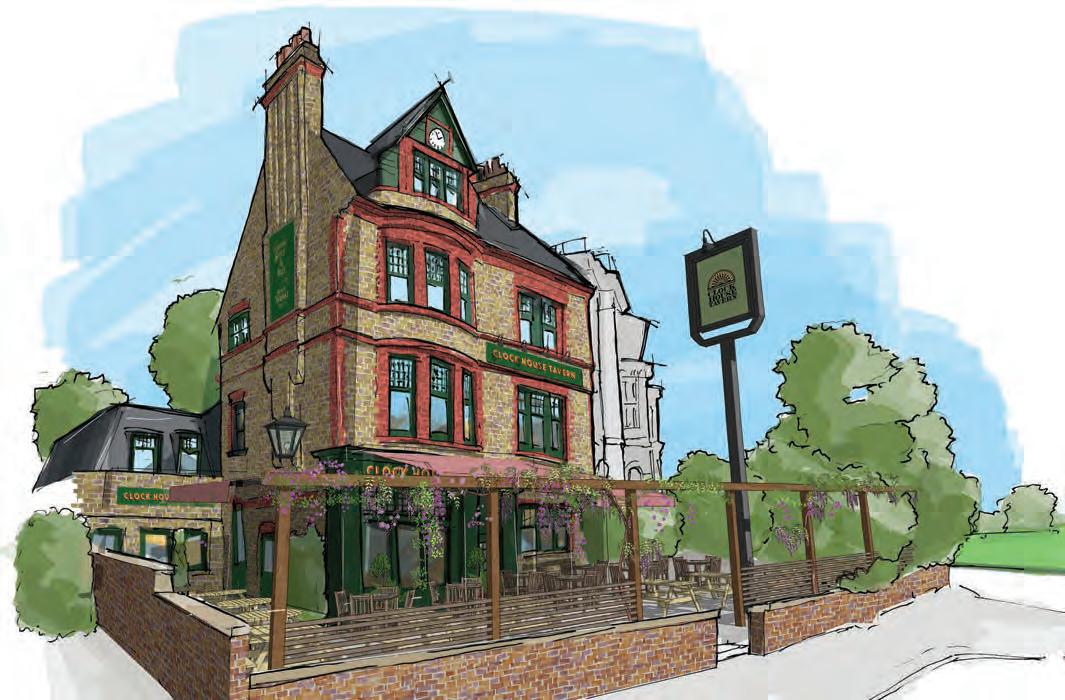
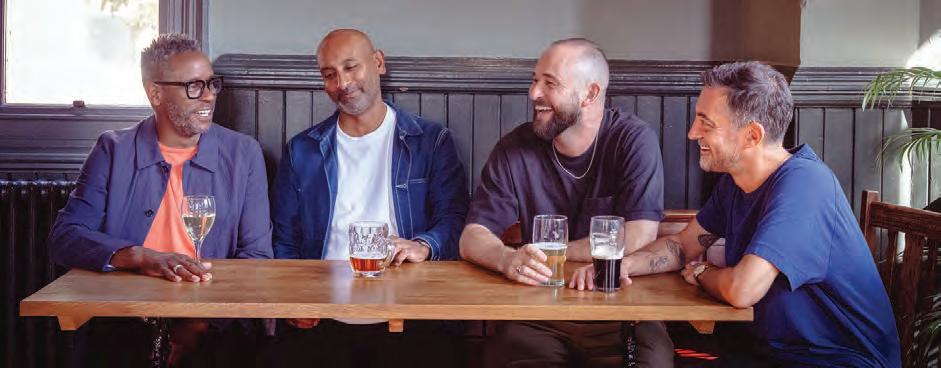

Parched pubs are excited to announce the opening of the Clock House Tavern on Peckham Rye. The pub has been restored back to its finest splendour across two floors. Parched, an independent South London pub group founded by four local friends with a passion for preserving the rich pub culture of South London. Known for creating local favourites like The Montpelier, The White Horse, and most recently The Earl of Derby.
Taking over the kitchen is Gengelly's - aka the talented chef duo George Genn and Laurence Pengelly. Gengelly’s first Parched residency in the Earl Of Derby opened to critical acclaim, and remains a firm favourite in the community. Continuing their legacy, their menu will focus on bold, unfussy and delicious dishes. Expect grilled fish and steaks, seasonal flatbreads and fresh pasta, as well as their classic Sunday Roast.





